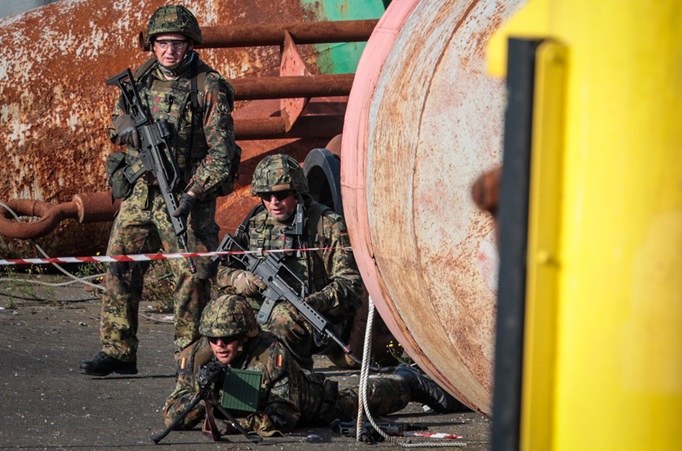German armed forces to form new homeland security unit
Published : 11 Jan 2025, 22:36
Germany's Bundeswehr will establish a major new land forces unit dedicated to securing critical infrastructure and key military facilities across the country, an army spokesman said on Saturday.
The new homeland defence division will consist of reservists and active soldiers under a unified command and will be partially active, the spokesman told dpa.
The unit is expected to be formed in mid-March and number some 6,000 personnel by the summer before it is expanded further, according to the military planners.
Last year, Defence Minister Boris Pistorius ordered a reorganization to strengthen the Bundeswehr's defence capabilities with a unified operational command.
Pistorius referred to the changed threat situation and the need to be able to survive militarily in a defensive war.
Comprising the army, navy and air force, as well as medical and other support services, the Bundeswehr currently has more than 260,000 personnel, including civilian staff.
As part of the new structure, the homeland defence forces will be placed under the army's command starting April 1.
Currently, the army comprises three divisions, each consisting of approximately 20,000 personnel.
The addition of a fourth major unit dedicated to homeland defence marks a significant enhancement of the Bundeswehr's capabilities.
The homeland defence will be tasked with protecting ports, railway facilities and freight transhipment points, as well as pipelines, roads for troop deployment, bridges, transport hubs and digital infrastructure, according to the Bundeswehr.
It will also safeguard Germany's role as an operational base and hub for NATO, protecting both national and alliance property in times of crisis or conflict.
In peacetime, the division can also provide administrative assistance in the event of serious accidents, terrorist situations or pandemics.
The plans are based on the assumption that the existing army divisions could be deployed to NATO's external borders under NATO command as a deterrent or to defend against a possible aggressor.
For example, this could mean to Poland, Lithuania or Estonia, which would leave the homeland defence forces available for deployment in Germany.
Military planners consider at least a high five-digit number of homeland defence personnel to be necessary.
The planners are also relying on the reintroduction of military service that was initiated last year by Pistorius. The move was put on hold following the collapse of the coalition government in November, but preparations are continuing.
Germany's CDU/CSU conservative alliance, which is currently leading in the polls ahead of February's parliamentary elections, has said that it wants to go further than the military service model already put forward by Pistorius.


